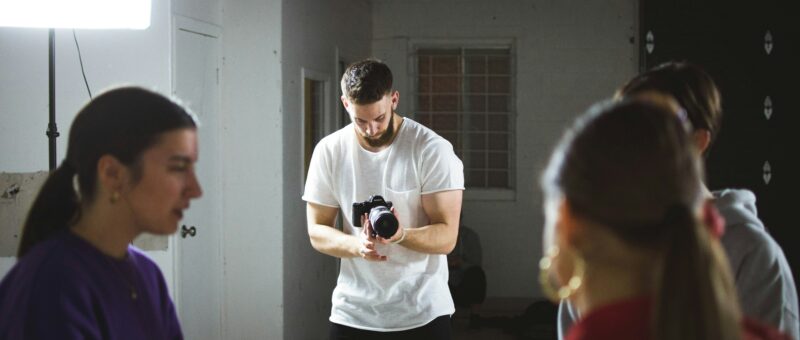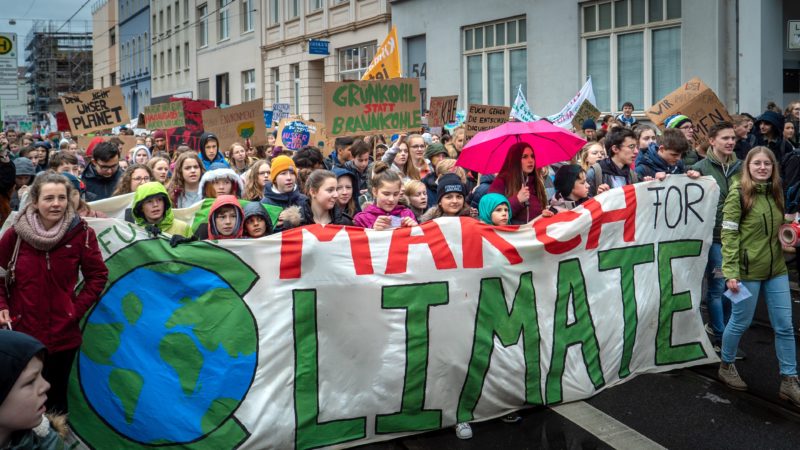Using theatre to engage the public in green alternatives
Exploring new ways of using narrative to promote and understand green climate policy solutions

There is an appetite for action on climate change, yet awareness of some of the most effective solutions remains low. As a Professor of Sustainable Business, I grew frustrated with the narrowness of the academic audience and turned to storytelling to reach a mainstream audience. This resulted in writing a play ‘Murder in the Citizens’ Jury’ which will be staged in September 2024. It’s adapted from a TV pilot which won the 2024 Writing Climate Pitchfest.
The production is part-funded by the British Academy Shape Involve and Engage award. It explores one of the most pressing questions of our time: what do we do when our current systems are driving humanity to extinction?
The play is set in a citizens’ assembly on climate where eight people meet to debate climate solutions. The objective is to use the play to raise awareness and generate debate. Audiences are exposed to a range of climate policies through the story (details at the end). Murder in the Citizens’ Jury has an interactive element. A voting app and pullout voting and comment sheet in the programmes allows the audience to share their views on their favourite policies, so they feel they are part of the citizen’s jury themselves.
I adopted the innovative theatre-as-education approach because a storytelling format is a more engaging and possibly more effective way to understand how a policy affects different types of people. Usually in business or government, one would use a stakeholder analysis to see who is benefitted/harmed by a policy and how. These can be very dry, and it can be hard to engage with the impacts emotionally as the groups affected can seem distant. This story set in a citizens’ jury allows stakeholders to become characters and as such we identify with them and their needs more easily. We can then view policies from the perspective of a variety of people, all of whom have a unique relationship to the proposal.
A shorter dramatic monologue version followed by a Q&A was performed in April by award-winning actor Jack Klaff (Star Wars and others). The aim was to raise awareness of a form of participative democracy - citizens’ assemblies which are more representative, can think beyond short term electoral cycles, and are less subject to vested interests. Also, as demonstrated by the Northern Ireland citizens assemblies on same-sex marriage and abortion, they are better able to address topics that politicians fear to touch. In this case, the unpalatable truth that endless growth on a finite planet just won't work.
Feedback from the audience (121 attendees) showed that the play worked well to both entertain and educate. Feedback forms indicated that everyone agreed that they were glad they attended the event and that they had learned something new. For details of audience responses, see https://www.greenstories.org.uk/theatre-in-education/
“ One performance has a workshop associated with it where we will recruit an audience of hairdressers and taxi-drivers to watch the play, debate the issues in a workshop and share their views.”
For the upcoming 90-minute whodunnit version, we will gather audience views on climate policies. One performance has a workshop associated with it where we will recruit an audience of hairdressers and taxi-drivers to watch the play, debate the issues in a workshop and share their views. We chose this sample to ensure a more diverse audience. In addition, as the objective is to raise awareness of climate policies, it makes sense to target chatty professions!
The project will enable us to gather data from the public and currently this data has nowhere to go. If it could be useful to policymakers, campaigners, or researchers, I’d be happy to share it. If you need us to include specific questions, there is still time to add this to the programme, or if not, a local sixth form is staging the play in December.
See the climate policies included here: https://www.greenstories.org.uk/climate-policies-mentioned-in-murder-in-the-citizens-jury/ The most relevant to a green economy is probably personal carbon allowances, also known as personal carbon trading. Currently, carbon trading, pricing, and offsetting exists mostly at the company/country level. Extending these ideas to individuals would be transformational.

Many businesses use voluntary carbon offsets. If done well, offsetting can contribute to net zero strategies, but if done poorly, it only adds to the masses of greenwashing. Carbon offsets are also available to individuals e.g. when buying flights. Voluntary carbon offsetting allows free choice but is unfair in two ways. Firstly, people are effectively taxed for their green conscience. Second, an insufficient number of people choose to pay these to limit our greenhouse gas emissions to the extent required.
Personal Carbon Allowances are a non-voluntary alternative acting as a progressive tax on high-carbon consumption. Just like managing a financial budget, we’d be expected to live within a carbon budget. If we went below our personal carbon allowance, we can sell our carbon credits to those who go over. Thus they incentivise us to make low-carbon choices, and in turn incentivise businesses to develop more low carbon products and services. Personal Carbon Allowances were first proposed by David Miliband, DEFRA and the Sustainable Roundtable in 2007, but it was an idea ahead of its time. Now we can better measure the carbon footprint of products, services and activities, and there is greater public awareness of the climate emergency.
Other policies debated in the play are: sharing economy/libraries of things; Wellbeing Index to replace the GDP; on-demand buses; repair/reuse.
If you’re interested to know more, please contact D.A.Baden@soton.ac.uk. I’m keen to find theatre companies and schools to stage the play, and I’d also love the resulting data to be made use of.
- Denise Baden


